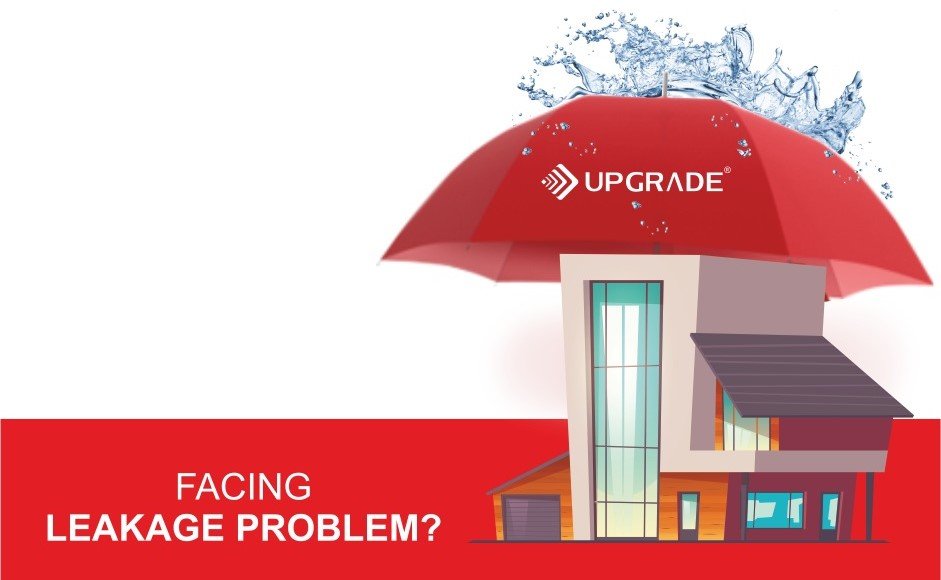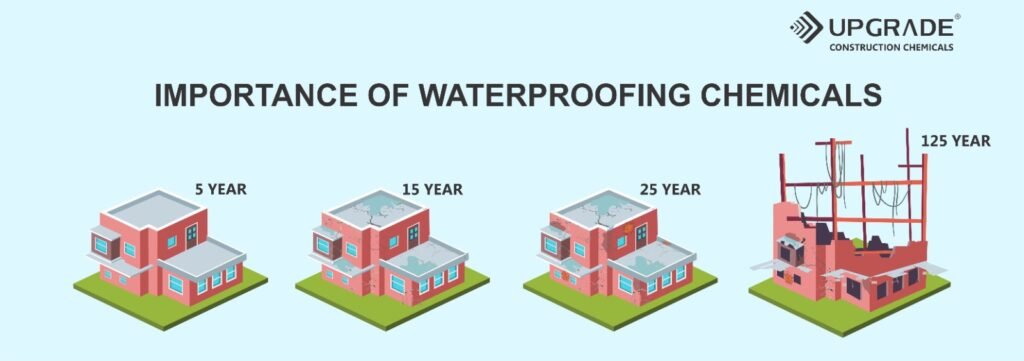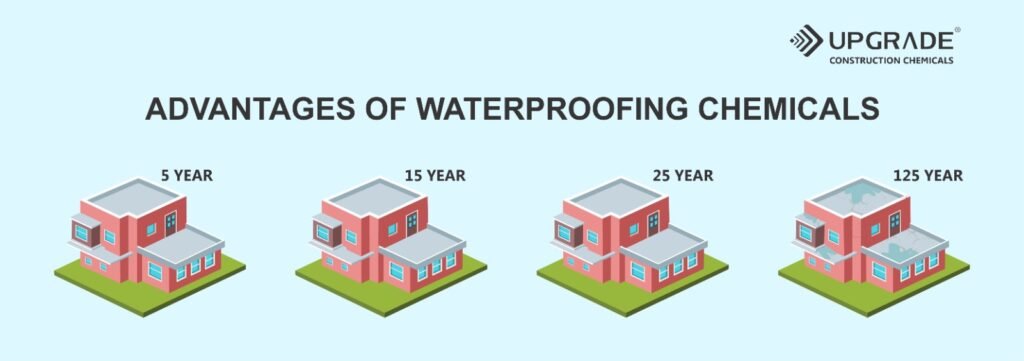
Water damage is a common and costly problem that homeowners face. Whether it’s a leaky roof or a flooded basement, water can wreak havoc on your home and your wallet. But did you know that there is a solution that can prevent water damage and save you money in the long run? Waterproofing chemicals are a powerful tool that can protect your home from water intrusion and keep your living space dry and comfortable. From roofs to basements, these chemicals can be applied to various surfaces and structures to create a waterproof barrier that can withstand even the toughest weather conditions. In this article, we’ll explore the benefits of waterproofing chemicals and how they can help you avoid costly repairs and keep your home safe and dry. So, let’s dive in and discover the wonders of waterproofing chemicals!
What is Waterproofing?

Waterproofing is the process of making a structure or surface resistant to water. It involves the application of a waterproof substance or material to prevent water from penetrating the surface. Waterproofing is essential to protect your home from water damage and to prevent costly repairs.
There are many areas in your home that require waterproofing, such as roofs, basements, and bathrooms. Waterproofing chemicals can be applied to various surfaces and structures to create a waterproof barrier that can withstand even the toughest weather conditions.
Importance of Waterproofing Chemicals

Waterproofing chemicals are an effective way to protect your home from water damage. They are designed to provide a long-lasting barrier against water intrusion. By using waterproofing chemicals, you can prevent water from seeping into your home and causing damage to your walls, floors, and foundation.
Waterproofing chemicals are also essential for maintaining a healthy living environment. Water damage can lead to mold and mildew growth, which can cause respiratory problems and other health issues. By waterproofing your home, you can prevent the growth of mold and protect your family’s health.
Types of Waterproofing Chemicals

There are several types of waterproofing chemicals available in the market. Each type is designed for a specific purpose and surface.
One of the most common types of waterproofing chemicals is acrylic-based. These chemicals are easy to apply and can be used on a variety of surfaces, including concrete, wood, and metal. Acrylic-based waterproofing chemicals are ideal for roofs, decks, and balconies.
Another popular type of waterproofing chemical is epoxy-based. Epoxy is a two-part chemical that creates a strong and durable bond. It is commonly used for basement walls and floors, as well as for concrete surfaces.
Polyurethane-based waterproofing chemicals are also widely used. They are ideal for surfaces that are exposed to high levels of foot traffic and are resistant to abrasion and chemicals. Polyurethane-based waterproofing chemicals are commonly used for balconies, terraces, and parking decks.
Advantages of Waterproofing Chemicals

Waterproofing chemicals offer numerous advantages.
Firstly, they provide a long-lasting solution to water damage. Unlike traditional waterproofing methods, such as tar and asphalt, waterproofing chemicals do not break down over time. They are designed to be resistant to weather conditions and to provide a durable barrier against water intrusion.
Secondly, waterproofing chemicals are easy to apply. They come in a variety of forms, including liquid, spray, and sheet membranes. This makes them suitable for both DIY projects and professional applications.
Thirdly, waterproofing chemicals are cost-effective. While the initial cost of applying waterproofing chemicals may be higher than other methods, the long-term benefits far outweigh the cost. Waterproofing chemicals prevent water damage, which can result in costly repairs and health hazards.
Areas that require Waterproofing Chemicals

There are several areas in your home that require waterproofing chemicals.
Roofs are one of the most important areas to waterproof. A leaky roof can cause water damage to your walls, ceilings, and floors. Waterproofing chemicals can be applied to your roof to create a strong and durable barrier against water intrusion.
Basements are another area that requires waterproofing. Water can seep into your basement through cracks in the walls or floors, causing mold growth and structural damage. Waterproofing chemicals can be applied to your basement walls and floors to prevent water from entering your home.
Bathrooms are also a common area for water damage. Waterproofing chemicals can be applied to your bathroom walls and floors to prevent water from seeping into your walls and causing mold growth.
How to Choose the Right Waterproofing Chemicals

Choosing the right waterproofing chemicals can be a daunting task.
The first step is to identify the surface that requires waterproofing. Different surfaces require different types of waterproofing chemicals. For example, a concrete surface requires a different type of waterproofing chemical than a wooden surface.
The second step is to consider the weather conditions in your area. If you live in an area with heavy rainfall, you will need a waterproofing chemical that can withstand the rain.
The third step is to consider the application method. Some waterproofing chemicals require professional application, while others can be applied by the homeowner.
Application of Waterproofing Chemicals

The application of waterproofing chemicals depends on the type of chemical and the surface it is being applied to.
Acrylic-based waterproofing chemicals can be applied using a brush, roller, or spray. Epoxy-based waterproofing chemicals require a two-part application process. Polyurethane-based waterproofing chemicals are applied using a spray or roller.
It is important to follow the manufacturer’s instructions when applying waterproofing chemicals. Proper application ensures that the chemical provides a durable and long-lasting barrier against water intrusion.

